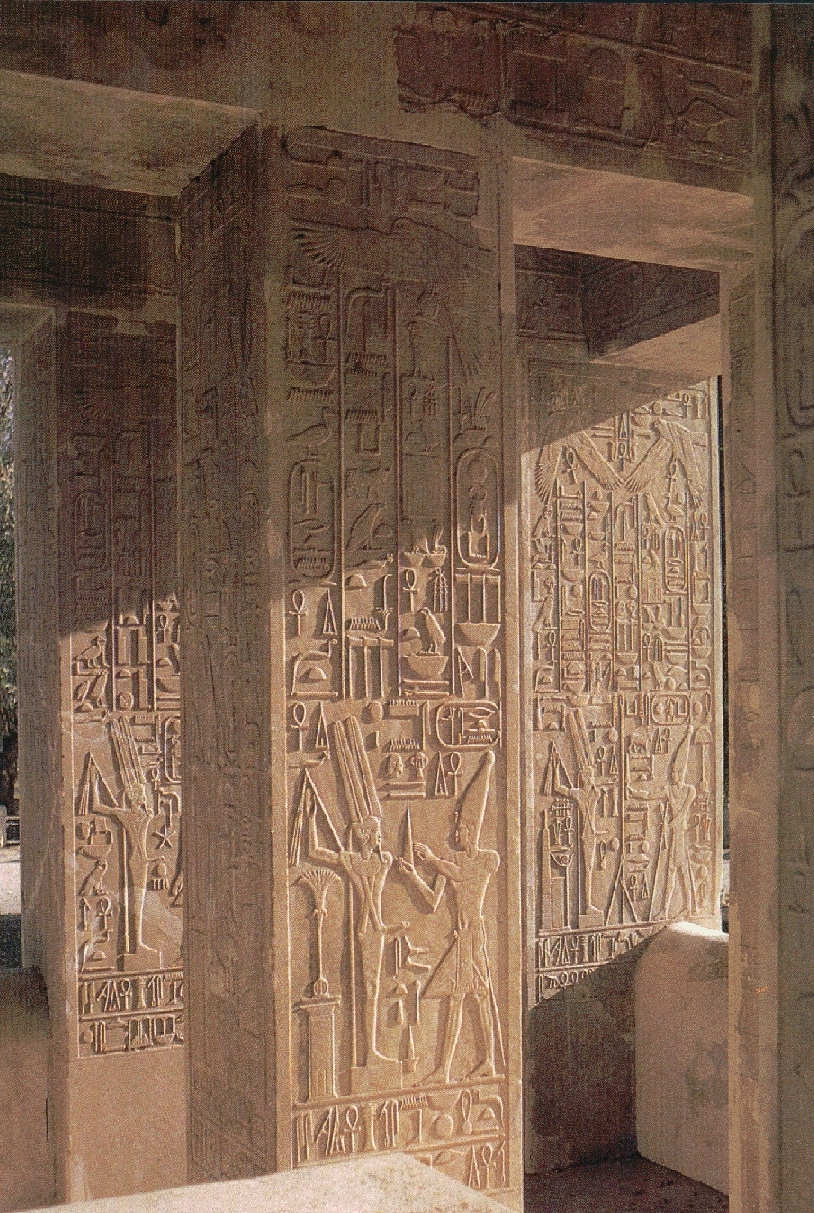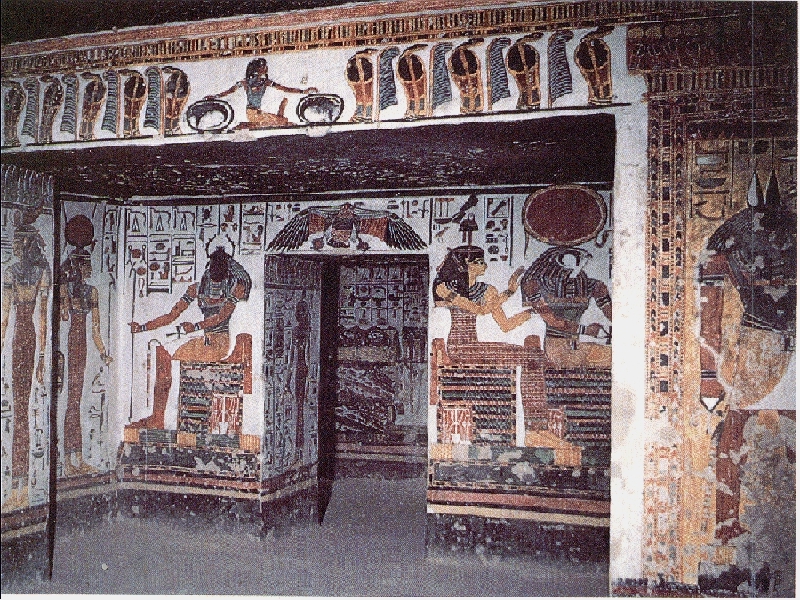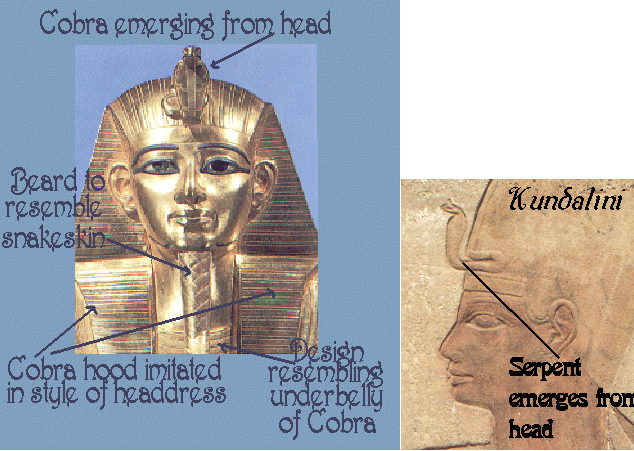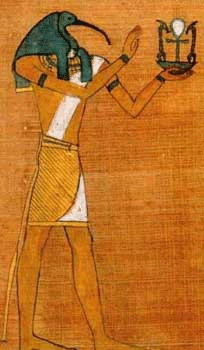Ancient Egypt
From JoS Wiki
(Redirected from Egypt Four: Thoth)
The White Chapel
Scroll down for an explanation with interpretations. These are instructions for revamping the life force, transformation of the soul and becoming a God. This is Satan's Gift to humanity.
Note, the above, the closest wall to the view of the picture:
- The God is directing his sexual energy into his 3rd eye.
- His feathered headdress indicates the lightness of feeling that comes with this energy working.
- The other God is holding a cone shaped object, this I believe indicates concentration of energy, as the base is wide and the apex tapers to a point. The concentrated energy is directed into the 3rd eye.
- Beneath the God with the feathered headdress' penis is a loop like object, indicating the circulation of sexual energy.
- Above, in front of the God holding the cone is an Ankh, before the ankh is another cone, indicating the concentration of the life giving sexual energy in the ankh.
- The God holding the cone is wearing a different headdress than the God who is directing his energy. It is apparent the God with the cone is instructing him. He has not yet reached the higher level of the God holding the cone. This can be seen in the headdress which is a double feather, indicating he has reached the stage where he feels the levetivity. The headdress on the other God has a serpent (cobra) protruding from the front where the 3rd eye is, indicating he has achieved the ascension of the serpentine energy of kundalini.
- Above the God with the feathered headdress, there are images of the serpent, the cone of concentration and the ankh.
- On the opposite side is a cartouche, depicting a scarab with a ball above it. Directly beneath the cartouche appears to be radiating energy, the lines. Beneath this are the feathers of lightness. Directly beneath another cartouche containing an eye shape which I believe represents the 3rd eye again. The looped symbol. This indicates this God standing opposite the god with the feathers has achieved mastery and immortality. Look at the above carvings as opposed to the God with the feathered headdress. There are 2 feathers, indicating he has already accomplished this stage, has moved on to bring up his energy and reach transformation and rebirth indicated by the scarab of immortality.
- The God on the rear wall is at a lower stage indicated by the serpent and the Ankh being at a much lower level. The ball beneath his penis indicates the building of the ball of energy through orgasm up in the 8-9th chakras of the 4th dimension.
- The God on the farthest wall in front, has a loop shaped object, directly beneath his penis indicating again, the circulation of sexual energy. The way to immortality.
- All three depictions are at different levels of achieving the goal of immortality.
The Gods left these carvings in stone for those of us who are enlightened enough to read and understand them, as they cannot be altered. They are instructions and the hieroglyphs are deeply religious. Those of us who understand are to teach and enlighten the rest.
-High Priestess Maxine
Part Two
- Towards the middle is Amon. It is apparent he has reached the level of transformation. I believe the images of the animal heads represent this very transformation. Note the ball of energy above his head (eighth chakra) with the serpent (symbolic of kundalini) protruding from the front.
- A Goddess (I believe is his wife) sits behind him, palms facing him with her hand chakras directing energy into the rear of his 6th chakra.
- She is demonstrating a lower level of achieving the goal of spiritual transformation. A depiction of a bird perched sits above her head, indicating she has not yet reached the levity stage.
- Amon is holding the ankh, indicating he is circulating the energy she is giving him.
- Note on the overhanging wall above, the serpents along with the feathers. The Goddess in the middle, Nephthys? holds two circles which I believe contain the serpentine energy.
Egyptian Cobra
Thoth
Note the hand placements of Thoth. Many Egyptian Paintings and images have this hand placement, exposing the palm chakras.




